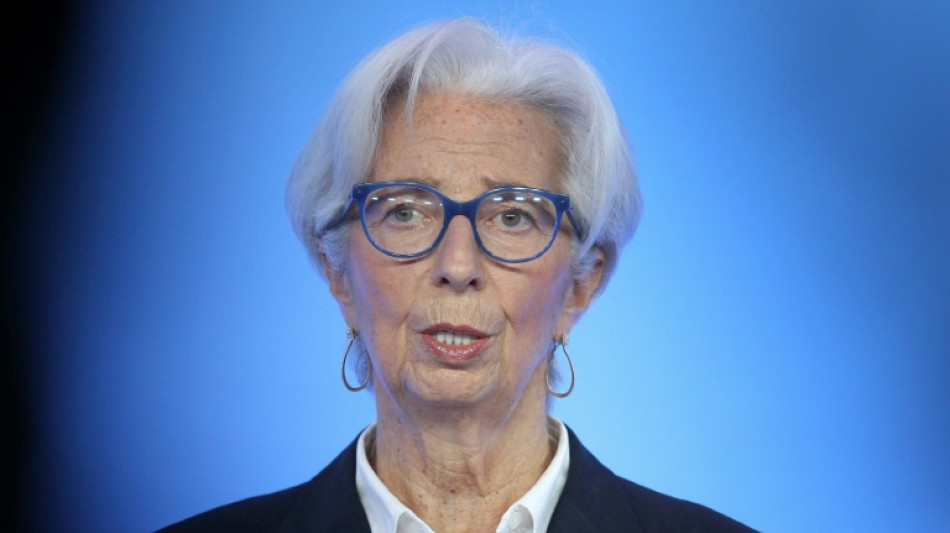

ECB keeps 'all options open' as Ukraine war shakes eurozone
The European Central Bank on Thursday sped up its plans to wind down its bond-buying programme but gave itself time before raising interest rates, as the conflict in Ukraine clouded the outlook for the eurozone.
The Russian invasion was a "watershed for Europe", ECB President Christine Lagarde said in a press conference following a meeting of the bank's policymakers, reaffirming a pledge to "take whatever action is needed" to stabilise the economy.
Wearing a blue-and-yellow Ukraine pin on her lapel, Lagarde said the war would have a "material impact" on the economy, just as the fallout from the coronavirus pandemic was fading.
In response, the Frankfurt-based institution will "keep all the options open" to shield the economy from the shock of war and sky-high energy prices, Lagarde said.
In their meeting, ECB policymakers confirmed the end of the bank's massive pandemic emergency bond-buying programme (PEPP) this month.
But the ECB surprised observers by announcing it would accelerate the wind-down of a separate, pre-pandemic bond-buying scheme, plotting an end in the third quarter of 2022.
The end date was, however, dependent on inflation forecasts staying around the ECB's target, Lagarde stressed.
The ECB also pushed back the start of a potential interest rate hike, saying it would happen "some time" after the end of the asset-purchase programme.
The "time horizon is not what is going to matter most", Lagarde said, adding that the hike could then come "the week after" or "months later", and that new economic data would be the deciding factor.
In the past, the bank had said that adjustments to its historically low interest rates would come "shortly after" the end of bond buying.
- Stagflation fears -
"This decision gives the central bank maximum flexibility and keeps the option open for a rate hike before year-end," said Carsten Brzeski, head of macro at the bank ING.
The risk of "stagflation" in which inflation soars but growth lists, eroding economic well-being, had "strongly increased" after the invasion, Brzeski said.
The outbreak of the conflict has given a fresh push to inflation in the euro area, which sat at an all-time high of 5.8 percent in February.
In new forecasts that took into account recent events, the bank revised the short-term forecast for growth down to 3.7 percent for 2022, from the 4.9-percent figure expected in December.
ECB experts in turn bumped up the expectation for inflation this year to 5.1 percent from 3.2 percent, followed by 2.1 percent in 2023 and 1.9 percent in 2024.
- Energy risk -
The inflation spike has been driven in no small part by soaring prices for energy due to the conflict with Russia, a major supplier to European countries.
The conflict created a "substantial" risk of even higher inflation, Lagarde said, with the impact felt particularly through energy prices.
While the United States and Britain will stop importing Russian oil, European sanctions have so far exempted energy to avoid heaping pressure on domestic economies.
A number of EU countries, including Germany and Italy, are highly reliant on Russia for their energy needs, and gas prices hit all-time highs at the beginning of the week on fears of conflict-related cuts to supply.
All in all, the war "will negatively affect" the eurozone economy, Lagarde said.
High costs of energy could mean that economic activity was "dampened significantly", the former French finance minister said.
Similarly, the conflict and the resulting Western sanctions against Russia "could worsen supply side constraints again", Lagarde said.
Lagarde also said the ECB was "exploring" ways to support the Ukranian people and authorities, potentially by offering foreign-currency swaps to the local central bank.
A fiscal response from governments was also "critically important" but would be for European political leaders to decide, Lagarde said.
(V.Castillon--LPdF)




